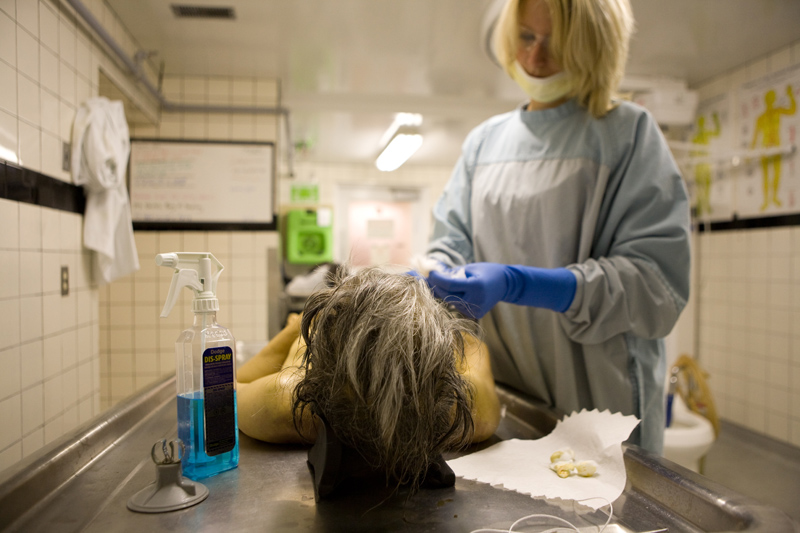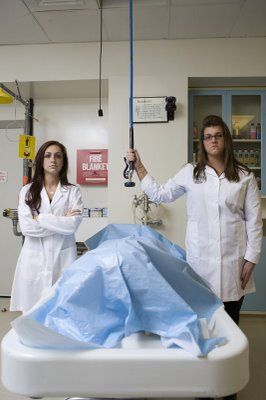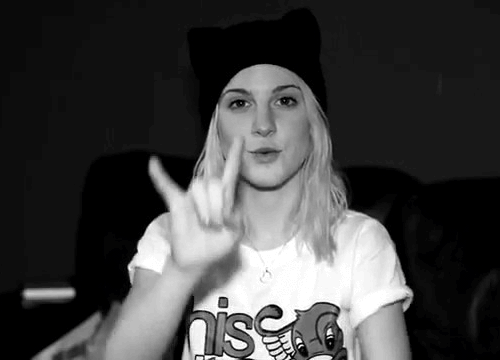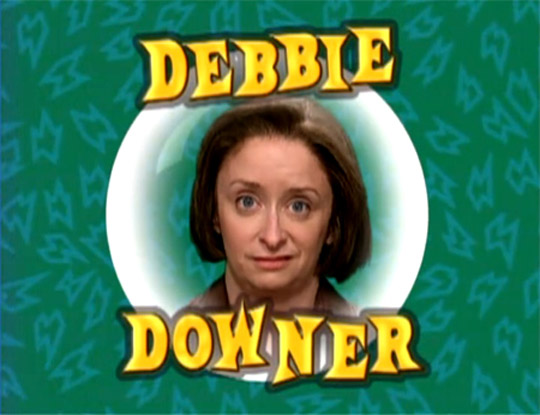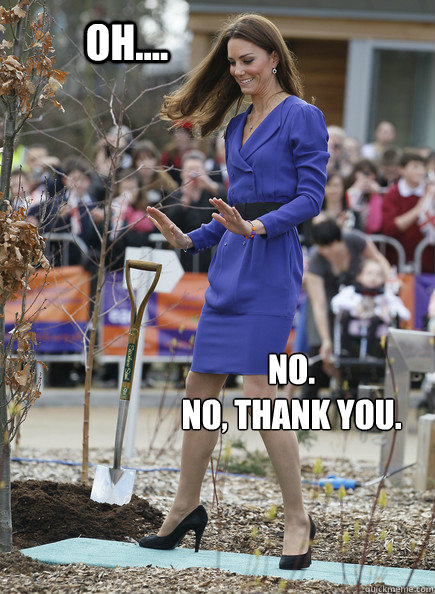Our good friend and Order of the Good Death member Jeff Jorgenson gives us some real talk about getting started in the funeral industry. Visit his amazing Seattle-based green cremation/natural burial funeral home, Elemental.
*~*~*~*~*~*~*~*~*~*~*~*~*
Over the years I’ve found that a career as a funeral director is usually nothing like people think it is.
I’m not saying that it’s bad; I want to praise and encourage anyone that is looking to get into the business. Funeral professionals are quick to lament the pool of unqualified and ungrateful applicants while we pat ourselves on the back for being part of such a noble and incredible profession.
Here are some of the questions and preconceived notions that I frequently get from those that have a deep desire to get into the biz, and the casually curious individuals.
I want to be a funeral director. I think it would be amazing to work with and prepare the dead.
Truth is, most funeral directors don’t do a whole bunch with the dead. There is the occasional makeup, helping with some prep-work, removals from place of death, and transportation to the cemetery or crematory. There may be some other occasions to help with the dead, but for the most part, this is left to the auspices of the embalmer, removal techs and the crematory operator.
Tip: If you want to be an embalmer, cremationist, or removal tech, approach the interview as a potential job–not an opportunity to get in touch with some philosophical greatness.
I want to be in the funeral profession because I want to be of service to people at a difficult time.
I think this is the biggest misconception. Funeral directors are not the social worker’s creepy cousin that has some martyr function. It’s as if they think funeral directors are blessed with some capacity to walk the hallowed halls of grief and cushion death’s evil blow and that they are unique because there isn’t anyone else out there that can, or would want to, do it.
Here’s the raw truth if you are one of these people: Families that come to the funeral home do not want you to hold their hand. If they wanted a therapist, they would call one. I’m not saying that it doesn’t take a special kind of grace, a ton of empathy and a pile of sensitivity to work with people when they are going through the process of loss. What I am saying is that they mostly want someone who can get them death certificates in a hurry and take care of cremating their loved one.
How do I go to school and get paid?
Mortuary science schooling is no different than any other trade or, even academic, degree. The degree covers the sciences, body prep, funeral arts, and business and marketing. You either take out loans or work your way through it. If you are fortunate and diligent, you can get a position in a traditional funeral home so that you can get the view from the conservative perspective and learn the positives and many negatives in that world.
I will say–I didn’t do a mortuary science degree like many people in the business. I had eight years of business education and couldn’t justify going back to get an AA/BA degree for something that I don’t want do–embalm. I spent five years managing multiple funeral homes and cemeteries in all operational aspects, largely by accident, so I didn’t need extra schooling to gain entry or experience funeral directing. In some parts of the country, the mortuary science degree may be the only way in.
What are the daily duties of a funeral director?
My best answer to this question is: “A funeral director is a wedding planner on a very compressed time scale.”
It depends on the type of firm that you’re working in as to what you do on a daily basis. If you are in a lower cost cremation house, you meet with families to collect information, prepare the death certificates, file them with the county, send cremation authorizations to the crematory and call the families to come get their loved one when the death certificates and remains are back.
If you are in a more traditional funeral home, it really is more event planning. In addition to the things mentioned above, you need to do all of the things that make a memorial or funeral services happen. Flowers, catering, service stationary, and merchandise ordering (casket, vault urn) needs to happen. Coordinating with the cemetery and crematory are critical too. In short: project management. Oftentimes, you are coordinating the resources of the funeral home to see to it that the tasks are accomplished. Note: playing with the dead and holding hands with a sobbing widow are not on this list. You won’t have time.
How do I network my way in?
It’s tough to network your way into the business. The general view of funeral home managers and owners that anyone that is that eager to get a job in the business is probably cracked. Irony, yes, but it is also accurate. There are a lot of people that just think it’s cool to hang out with dead people. Truthfully, the dead are really boring. Their families, on the other hand, are a hoot.
It’s rare that a traditional funeral home would hire entry level funeral directors without a license. They will hire removal techs, admin positions, and sales people and this may be a good entry point for you to prove that you have the interest and staying power to stick with it. Good funeral directing is an artful balance between listening, event planning, and operational management. None of which are easily demonstrable without some form of vetting beyond the internship.
I really like alternative funeral practices; is there a market for non-traditional service?
We all believe, like you, that there is a burgeoning marketplace for funerals that don’t adhere to the American contemporary funeral practice. Much of what we, as a movement, need to accomplish needs to happen within the construct of the traditional funeral home–because they have the largest audience.
The reality is that in any given market–excluding New York and LA–there isn’t a viable market for more than one boutique event funeral home. In many markets, such as my dear little Seattle, you could argue that there’s enough overlap with what the traditional firms offer that you really don’t have a full time business model for it at all. Yet.
All the Debbie Downer stuff is really a reality check. If you’re still reading, you are probably more cut out for this than most.
I want to point out that a job in the funeral business is one of the most wonderful jobs/careers that you can have. If you do your job properly, people feel better. You can’t get that kind of satisfaction coding a website or tending bar. I know–I’ve done both.
If you take anything away from this post, it should be one major piece of homework: Identify WHY you want to be in the funeral business. There are no right or wrong answers, but the answers that you give may shock you and illustrate why the funeral industry isn’t for you.
If you are completely honest with yourself, you may find that an alternate path unfolds; that hospice work is for you, or that forensics is what you really want to do. Maybe you just want to be a psychologist and really need to buckle down and do the schooling.
Usually, what I recommend to people is to research the firms in your area to see if there is one that looks like it would be a good fit for you. Are you into home funerals? You may want to reach out to those in your area that are practicing and seeing if they would be willing to sit down and discuss opportunities for you to volunteer for them. Want to get into traditional American funeral practice? Look at getting a job doing removals and odd jobs around the funeral home for the local mom and pop firm.
If you just read that paragraph and had the thought, “Oh no, removals/odd jobs/volunteering is beneath me.” Or felt your heart sink because there wasn’t anything interesting, you may not be cut out for this.
However, if you thought, “Yep, I’m willing to do anything, let’s get in there,” then you’re either cracked, or you have what it takes. Or both.


